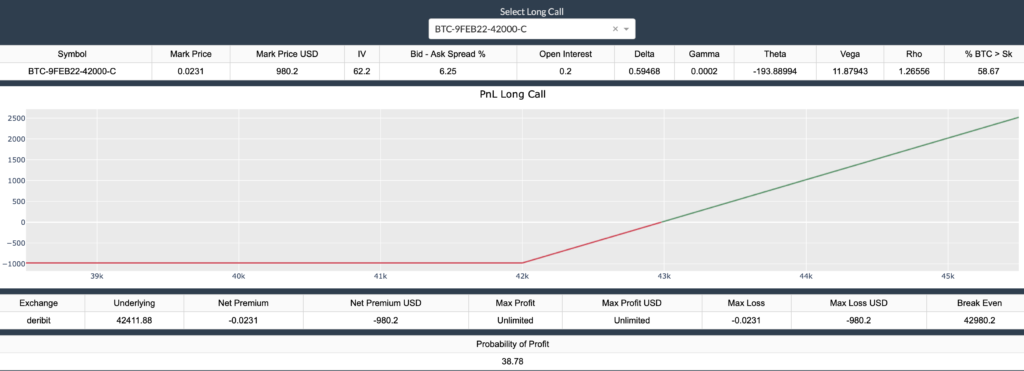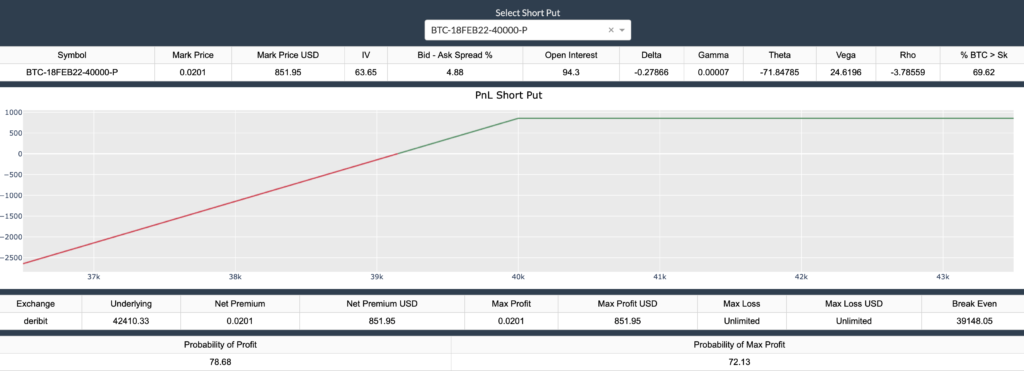Introduction to bitcoin options trading
An option is a financial instrument which derives its value from an underlying asset. The underlying asset could be a currency (Bitcoin or Ethereum), or a market index. For example, the underlying asset of Bitcoin options on the OKEx exchange is BTC/USD index, and on the Deribit exchange is the Deribit BTC Index.
An options contract is an agreement between an option buyer and an option seller, that provides a right to buy (call options) or to sell (put options) a specified amount of an underlying asset at the predetermined date (expiration date) for a settled price (strike price). One option contract is equal to one Bitcoin/Ethereum. However you can trade with smaller orders. For example, minimum option contract on the Deribit exchange is 0.1 option contract.
There are two styles of option contracts:
- American style – can be exercised anytime up to and including the expiration date.
- European style – can only be exercised on the expiry date (this is mostly done automatically).
At vast majority of the crypto options trading exchanges (Deribit, OKEx, Bakkt, CME Group), all options are European style.
Another important classification of options is moneyness. Based on the difference between the strike price and the price of the underlying asset, moneyness gives us insight into intrinsic value of an options contract:
- In The Money (ITM) – a call option is in the money (has an intrinsic value) if the strike price is above current market price (spot price) of the underlying asset, and a put option is in the money if a strike price is below the market price.
- At The Money (ATM) – a strike price is equal to the spot price
- Out of The Money (OTM) – a call option is out of the money (has no intrinsic value) if the strike price is below the spot price, and a put option is out of the money if a strike price is above the market price.
This classification can help you in choosing a proper strike price based on the current state of the market, and an options trading strategy you chose.
A type of an option can be a call or a put.
There are four basic positions in options trading:
- A long call – you are paying the option premium in exchange for the right (but not the obligation) to buy BTC/ETH at a strike price on an expiration date

- A short call – you are receiving the option premium in exchange for the right and the obligation (if a buyer of the option chooses to exercise their right to purchase) to sell the BTC/ETH at a strike price on an expiration date

- A long put – you are paying the option premium in exchange for the right (but not the obligation) to sell the BTC/ETH at a strike price on an expiration date

- A short put – you are receiving the option premium in exchange for the right and the obligation (if a buyer of the option chooses to exercise their right to sell) to buy the BTC/ETH at a strike price on an expiration date

Benefits of crypto options trading over spot trading:
Options cost significantly less than the underlying asset, but their real benefit lies in their versatility to support a variety of profit and risk-minimization strategies enabling you to adapt your position in accordance with the current market state. For instance, options can help you to:
- Protect your crypto hodls from a price decline, or your short positions from a price jumps (this is called hedging)
- Generate regular income by choosing the right strategy
- Buy Bitcoin/Ethereum at a price below the market price
- Speculate on a price and/or volatility movement of an underlying security

